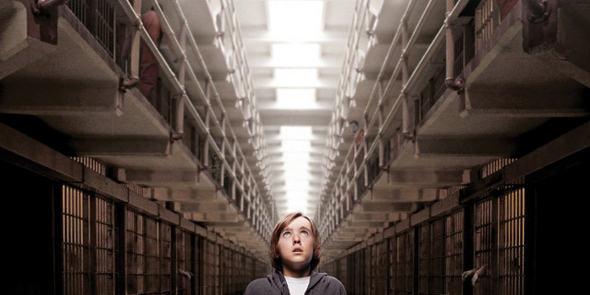Last week I watched a few episodes of “Beyond Scared Straight,” the reality show that follows a group of rebellious teens to prison, where they get a taste of life behind bars. Aside from being thoroughly entertained, I learned a lot about false hopes and society’s view of redemption.
The show introduces us to fresh-faced juvies caught up in drugs, sex and gangs. Their parents enroll them in prison programs designed to scare the shiz out of them so they’ll never want to step foot inside a penitentiary again. While locked up, they get a healthy dose of monitored bullying from men in jumpsuits, and hear cautionary tales from prisoners serving life sentences. Some episodes include trips to the morgue, behind-glass visitation from parents, or time in solitary confinement.
Here’s where it gets interesting, at least for the theologian. Each episode ends with a “where are they now” segment where, more often than not, the parents are pleased to announce their children have changed their delinquent ways. They return to school, help out around the house, and even go to church. Happy ending, right?
Not so fast.
While the hopeful part of me applauded the teens as they vowed to never return to prison, my inner realist reminded me that their redemption is a false one. Because instead of turning to Christ, they turned to self-improvement. In other words, they modified their behavior, but not their beliefs. Jesus still means nothing to them.
For instance, Abraham, 16, stopped smoking weed and now scores excellent grades in school. Great news! The bad news came in a follow-up interview, when he revealed his key to success was to “stay at home, play Xbox, relax and get fat.” Where’s the hope in that? I’d like to celebrate his progress, but here’s the reality: salvation can’t be found in recreation and relaxation. Those are mere distractions—things that keep Abraham from sinning, but cannot save him from his sins.
Jerry, 16, came to prison with a history of violence. After getting scared straight, he joined his school’s cheerleading squad because, according to Jerry, he loves being around girls all day. I wanted to admire his success, but wondered if he had simply swapped one sin for another—violence for lust. Pursuing girls may keep him off the streets, but only pursuing Christ can keep him from a fate far worse.
At the end of another episode, 16-year-old Armando stopped partying and doing drugs, and now attends church twice a week. I’ll admit I was pleased to see Armando at church, but sad because there was no talk of Jesus. Maybe the show’s politically sensitive producers were hinting at Armando’s salvation (I pray that’s the case), but taken at face value, it’s a very unhappy ending indeed. Because the reality is, even church can’t save us. Only Jesus can do that.
In a very real sense, these young men are still prisoners. To be truly saved we must move on toward knowing, loving and becoming more like Jesus, who lived a perfect life on our behalf, satisfied God’s wrath on the cross, rose from the dead, and now lives to be our righteousness. We can’t stop at good behavior. We can’t stop at self-improvement.
Paul put it this way: “For by grace you have been saved through faith. And this is not your own doing; it is the gift of God, not a result of works, so that no one may boast” (Ephesians 2:8-9).
Now that’s news that can set prisoners free!





4 Comments
Leave your reply.